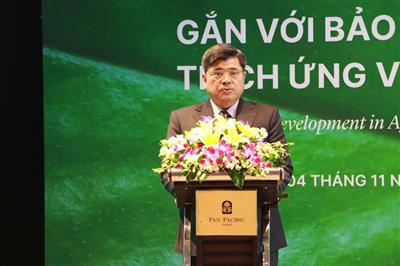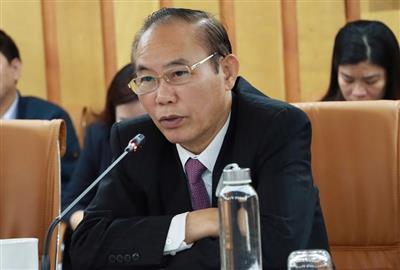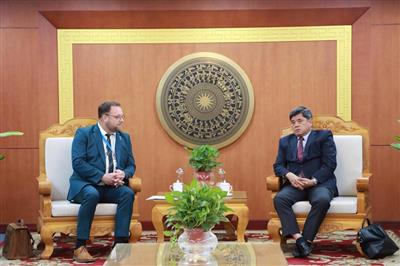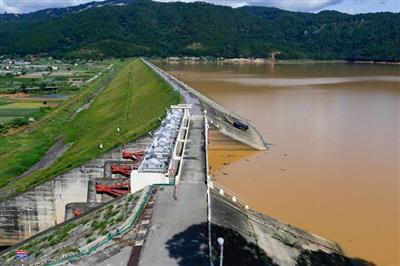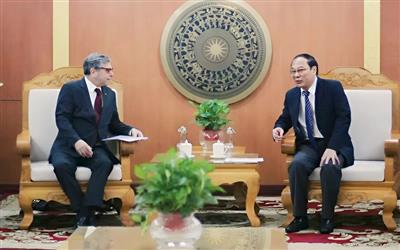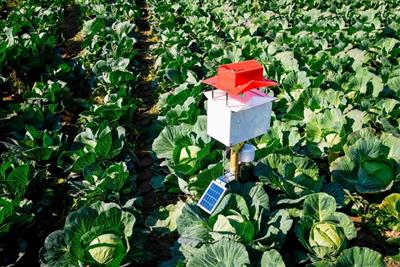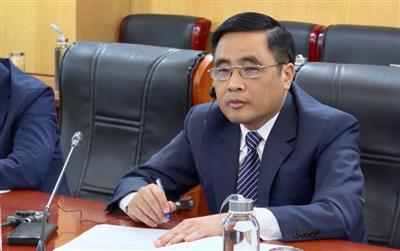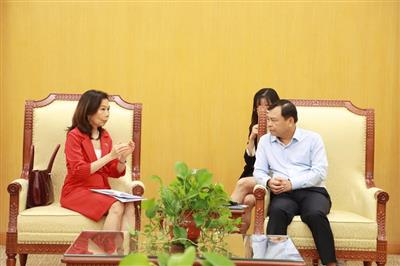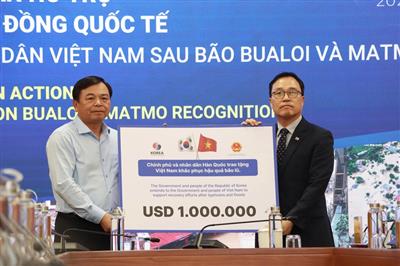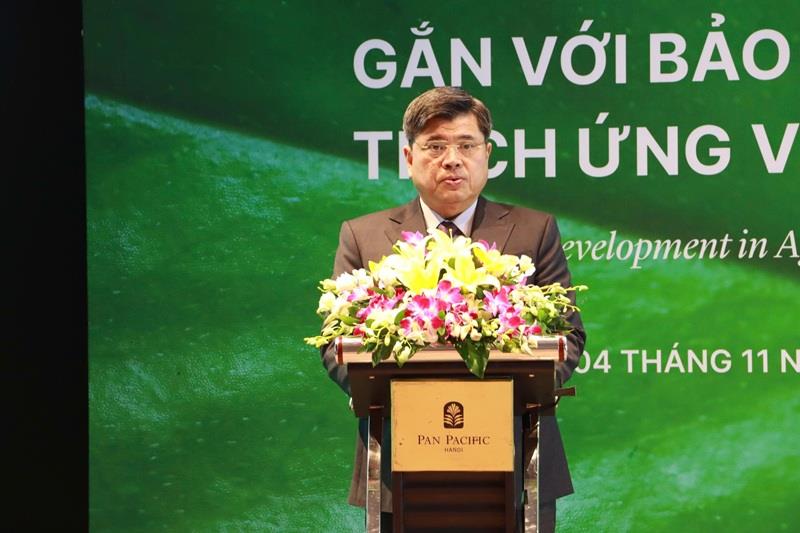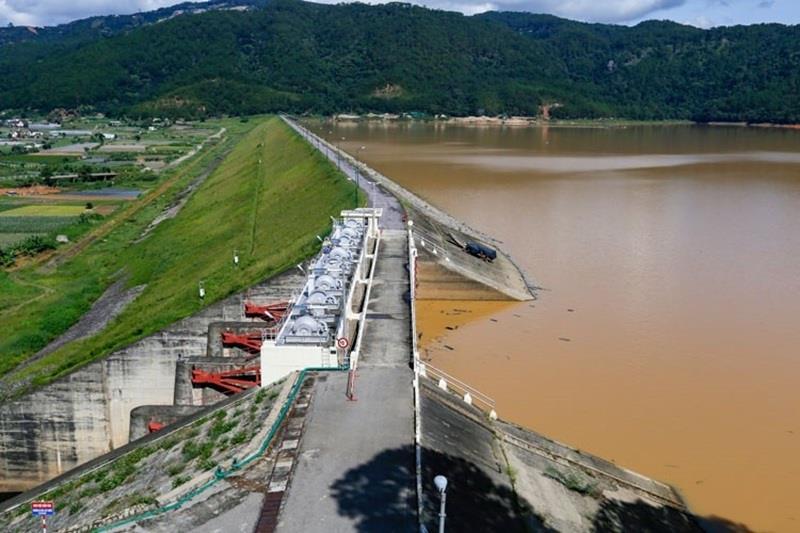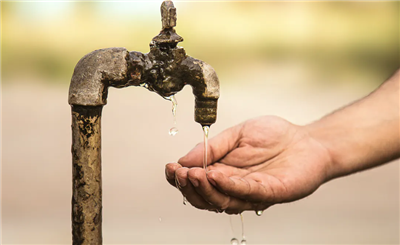
Vietnam and Argentina move toward a comprehensive strategic partnership in agriculture
01/07/2025TN&MTVietnam’s Ministry of Agriculture and Environment and Argentina’s Ministry of Economy have agreed to promote comprehensive, balanced, and sustainable cooperation in agriculture, food, and environmental protection—paving the way for a future strategic partnership between the two countries.
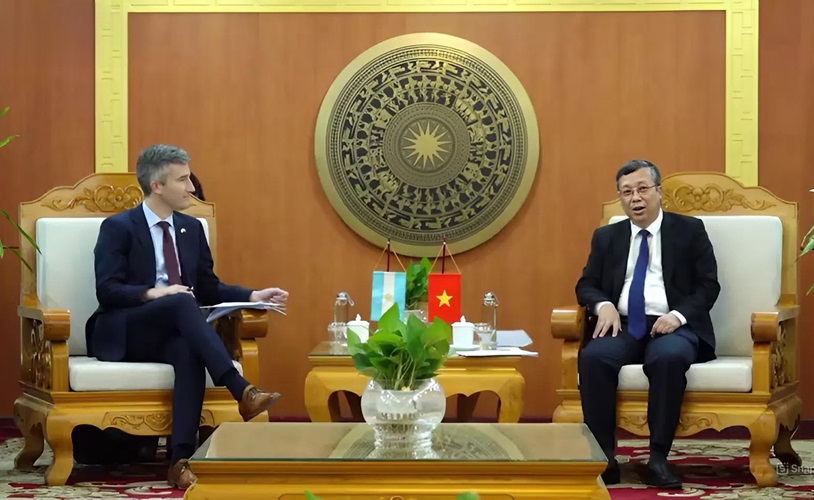
Deputy Minister Hoang Trung meets with Argentina’s Undersecretary Agustín Tejeda Rodríguez on July 1 to boost agricultural ties and explore untapped trade and technology cooperation
On July 1 in Hanoi, Deputy Minister of Agriculture and Environment Hoang Trung held talks with Mr. Agustín Tejeda Rodríguez, Undersecretary of Food Markets and International Integration under the Ministry of Economy of the Republic of Argentina. The meeting took place as agricultural cooperation between the two countries continues to grow, though significant potential remains untapped—particularly in terms of bilateral trade and technology transfer.
Advancing more balanced agricultural trade
According to statistics, the total two-way trade in agricultural products between Vietnam and Argentina stands at approximately USD 3.4 billion, with the majority being imports from Argentina, including corn, soybeans, fishmeal, cotton, and animal feed. In contrast, Vietnam’s agricultural exports to Argentina remain modest, totaling only about USD 1.2 million, primarily comprising cashew nuts, coffee, and processed seafood.
To address existing bottlenecks, both sides discussed solutions to overcome technical barriers and expand market access for each country’s key agricultural products. Argentina expressed its intent to accelerate the approval process for exporting pork, oranges, tangerines, pears, and apples to Vietnam. On the other side, Vietnam hopes that Argentina’s newly established Agricultural and Industrial Representative Office in Hanoi will facilitate access to the Argentine market for Vietnamese fruits such as mango, dragon fruit, longan, and star apple—all of which have completed technical processing but are not yet approved for import.
The two sides also agreed to develop a new memorandum of understanding (MOU) to replace the one signed in 1996, making it more responsive to today’s cooperation priorities. The proposed MOU will cover areas such as plant and animal quarantine, foot-and-mouth disease prevention, vaccine trials, and enhanced technical expert exchanges. Deputy Minister Hoang Trung described the plan as both practical and necessary, noting that the Ministry has tasked relevant departments with drafting the new agreement.
In addition, both parties agreed to expand trilateral cooperation models to support sustainable agricultural development. This includes promoting technology transfer, managing genetically modified organisms (GMOs), adapting to climate change, and strengthening collaboration on marine resource management and ocean environmental protection.
Toward a comprehensive strategic partnership
Concluding the meeting, the two sides reaffirmed their commitment to maintaining high-level delegation exchanges, organizing sectoral workshops, and boosting trade promotion efforts—all aimed at deepening bilateral cooperation in agriculture and the environment. They also pledged to work closely together to address technical barriers and finalize a legal framework conducive to business access to each other’s markets.
Speaking at the meeting, Undersecretary Agustín Tejeda Rodríguez praised Vietnam’s open-market policies and proactive cooperation spirit. He expressed hope that with a foundation of traditional friendship and complementary agricultural potential, both countries would soon turn commitments into concrete outcomes. “Vietnam has always been one of our top partners in agricultural cooperation, and Argentina is fully committed to supporting all areas of interest to the Vietnamese side,” he emphasized.
This meeting not only marked a routine bilateral exchange but also a significant step forward in Vietnam–Argentina relations—especially in the fields of agriculture and environment. Based on mutual respect and a shared vision for sustainable development and food security, the two countries are gradually laying the groundwork for a comprehensive strategic partnership—where agriculture is not only an economic pillar but also a platform for multifaceted cooperation, from technological innovation and climate adaptation to natural resource protection.
In a global context marked by supply chain disruptions, cross-border diseases, and increasingly complex climate challenges, deepening agricultural cooperation between Vietnam and Argentina serves not only national interests but also contributes to broader regional and global sustainability goals. It also reflects the active, responsible roles both countries are playing in shaping a modern, fair, and resilient agricultural future.
Minh Thao




